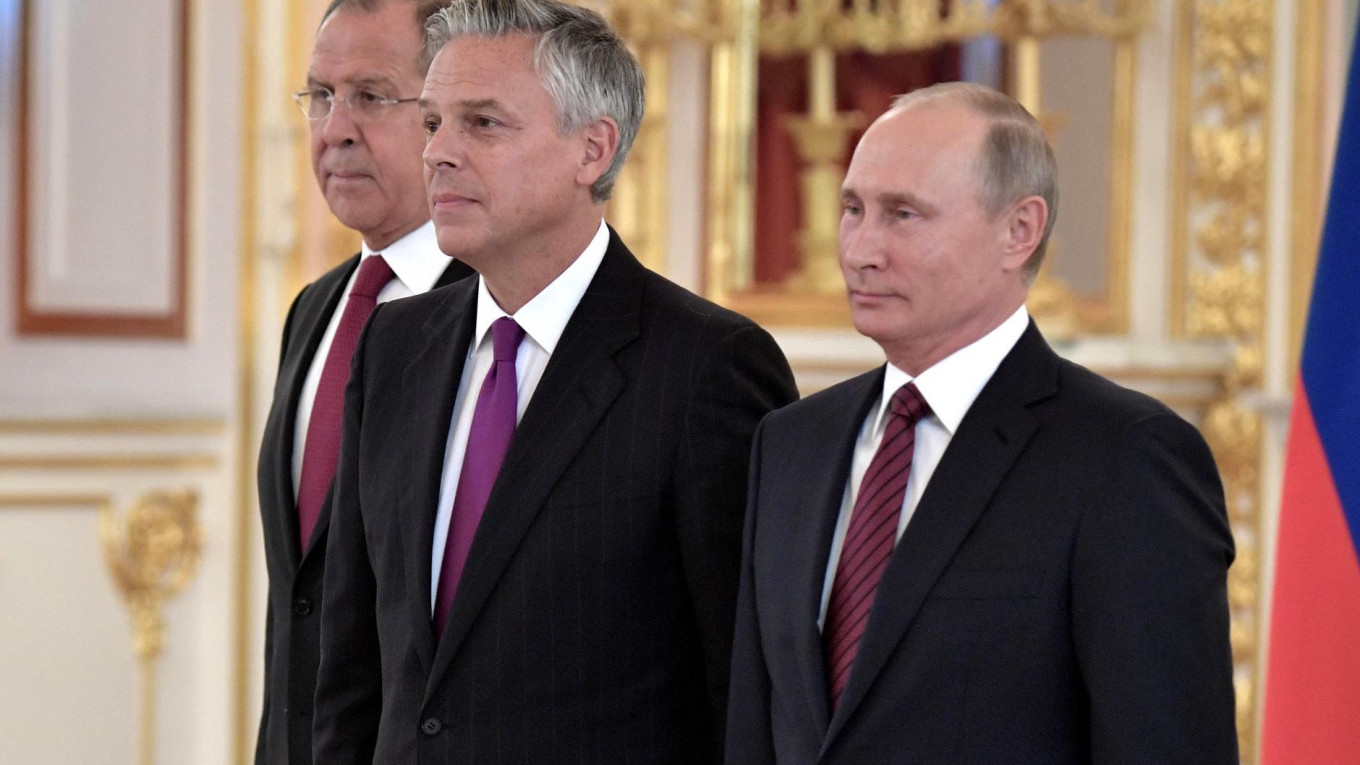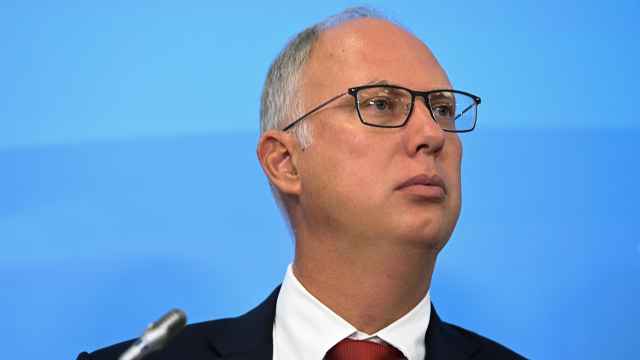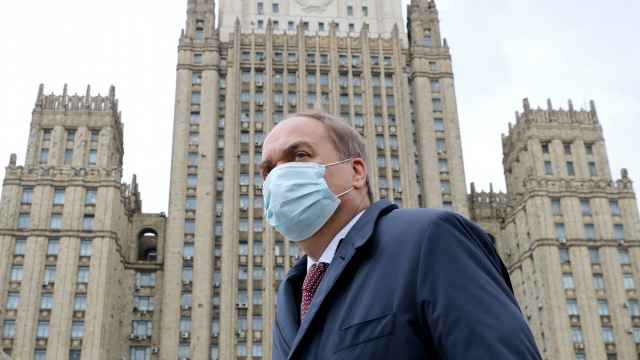Reflecting on my first three months as U.S. Ambassador to Russia and looking forward to the prospects for 2018, I remain convinced that, not only can we improve the U.S.- Russia relationship, but we must.
We are making progress, and there is much more we can achieve by rolling up our sleeves and finding a constructive way forward. We all know that the road ahead will be a difficult one, and that the issues that have come between us are complex.
For a better future for Russians, Americans and the world, we have to begin to find solutions to the common problems that confront us around the globe. How do we get there? I think it all comes down to two things: trust and results.
It’s no secret that our relationship is at the lowest point in years. People in the United States have made it clear that they expect and demand an improvement in the U.S.-Russia relationship.
It’s part of my job as a diplomat to get results, and I have pledged that I will do whatever I can in an honest, open, and transparent way to work with my Russian counterparts to discuss the hard issues related to our bilateral relationship the same way that I’m sure Ambassador Antonov is doing in America.
America and Russia can do extraordinary things when we cooperate, whether in space, in concert halls, in laboratories, or in business. This cooperation is the essence of people-to-people diplomacy, which forms the bedrock on which Russia and the United States have built lasting cooperation.
We want for as many Russians as possible to visit the United States and meet Americans so that we understand each other better as a people.
That’s why, despite a two-thirds reduction in mission staff, our embassy and consulates are working so hard to accommodate visa demand in Russia. It’s why we opened a new consular facility in Moscow earlier this month and are continuing to promote robust educational and cultural exchanges.
And yet in politics and sometimes in diplomacy, we don’t always collaborate as well as we should. We can take a lesson from effective U.S.-Russian interplay in areas like culture, arts, research, science, technology, and business, because so much is possible when we recognize the common ground that unites Russians and Americans. It is far greater than that which divides us.
As in any relationship, when times are difficult and we don’t see eye-to-eye, we need more communication, not less. As two great civilizations we should be maximizing our relationship, not minimizing it.
We need to take it to a higher level of trust. And once we achieve greater trust, more doors will open and we’ll be able to do more together.
Two areas in which we can and must cooperate are North Korea and Syria. Let’s be clear about the situation in North Korea: We simply cannot continue to accept the progress of Pyongyang’s nuclear program.
The United States and Russia have a shared view of the danger posed by North Korea’s actions, and both of our countries are under real threat from the possibility of an intercontinental ballistic missile fired from there.
This is why the international community, including the United States, Russia, and China, must commit to a nuclear free Korean Peninsula. This shared view and shared threat is why we are working together with Russia in the UN Security Council to condemn North Korea’s actions and use every means of influence to change Pyongyang’s behavior.
In Syria, we look for opportunities to work with Russia where we can, seek to narrow differences where possible, and stay mindful of the gaps that will inevitably remain.
The work we’re doing in Syria with our Russia counterparts is good. We’ve coordinated. We’re communicating. The fighting has almost stopped, and this is the work of Russia, the United States, and others.
The next few steps will include finishing the fight against ISIS [a banned terrorist organization in Russia] and bringing an end to the civil conflict is through Geneva as outlined in UNSCR 2254, the sole legitimate blueprint for a political resolution.
Russia has said that it would help bring the regime to the Geneva process, and we are taking them at their word.
It is no secret that the process of achieving better relations is going to require more work. It is going to require a steady effort at the negotiating table and honesty about the reasons why we are where we are today.
It is going to require us to listen to one another and hold honest, frank discussions on Ukraine, election meddling in 2016, and how we have come to our different views of the world.
I have no doubt that if we speak honestly to each other, if we listen, if we commit to finding solutions, then we’ll be on the right track.
We have to be mindful not to repeat the patterns of the past which take us in predictable cycles and go nowhere. We have a fragile baseline of constructive engagement; now the United States is focused on action.
We are looking for real openings in areas that reflect our common interests.
As the U.S. Ambassador to Russia, I believe that in spite of the difficulties we face in the U.S.-Russia relationship, we have no choice but to commit ourselves to working to build trust, identify common ground, get results and move forward.
Jon Huntsman is the U.S. Ambassador to Russia. The views and opinions expressed in opinion pieces do not necessarily reflect the position of The Moscow Times.
A Message from The Moscow Times:
Dear readers,
We are facing unprecedented challenges. Russia's Prosecutor General's Office has designated The Moscow Times as an "undesirable" organization, criminalizing our work and putting our staff at risk of prosecution. This follows our earlier unjust labeling as a "foreign agent."
These actions are direct attempts to silence independent journalism in Russia. The authorities claim our work "discredits the decisions of the Russian leadership." We see things differently: we strive to provide accurate, unbiased reporting on Russia.
We, the journalists of The Moscow Times, refuse to be silenced. But to continue our work, we need your help.
Your support, no matter how small, makes a world of difference. If you can, please support us monthly starting from just $2. It's quick to set up, and every contribution makes a significant impact.
By supporting The Moscow Times, you're defending open, independent journalism in the face of repression. Thank you for standing with us.
Remind me later.








